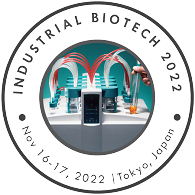Biomaterials, Bio polymers & Biosensors
A bio-based material is a material intentionally made from substances derived from living (or once-living) organisms. These materials are sometimes referred to as biomaterials, but this word also has another meaning. Strictly the definition could include many common materials such as wood and leather, but it typically refers to modern materials that have undergone more extensive processing. Unprocessed materials may be called biotic material. Bio-based materials or biomaterials fall under the broader category of bioproducts or bio-based products which includes materials, chemicals, and energy derived from renewable biological resources.
These are the polymers that are biodegradable. The raw materials used for the synthesis of bio polymers will be either renewable, i.e. based on plant or animal products. Bio polymers have several properties based on the material, e.g. barrier capacity. It is a renewable, greener and smart option to avoid usage of materials like polyethylene. In addition to this it plays a crucial role in managing the waste process.
Biosensors are used for the detection of biological analyte like enzyme, antibodies, cell receptors, organelles etc. The different types of biosensors with few modifications can be used to for the detection of glucose level in body, microbial invasion in body and food, heavy metals detection in soil, water and air-borne microbes, pesticides in water and soil and various harmful chemicals produced by body.
- For cancer therapy
- Biomaterials for ophthalmic applications
- Biomaterials in vascular grafts and embolic devices
- Starch bio polymers
- Cellulose bio polymers
- Protein bio polymers
- Poly hydroxy alkanotes
- Algal biopolymers
- Bioplastics
- Imaging senors
- DNA biosensors
- Canerous cell biosensors
- Food analyis
- Ozone biosensors
Related Conference of Biomaterials, Bio polymers & Biosensors
Biomaterials, Bio polymers & Biosensors Conference Speakers
Recommended Sessions
- Agriculture Biotechnology & Agro-forestry
- Animal Biotechnology and Marine Biotechnology
- Bio manufacturing, Bio refinery and Biofuels
- Biochemistry and Protein Engineering
- Bioinformatics, Systems Biology and Computational Biomedicine
- Biomaterials, Bio polymers & Biosensors
- Bioprocessing & Secondary Metabolites
- Biotechnology in Vaccine Production
- Environmental Biotechnology and Waste Water Management
- Enzyme Engineering and Drug Discovery
- Fermentation technology
- Genetic Engineering and CRISPR/Cas 9 Technology
- Industrial and Chemical Biotechnology
- Industrial Biotechnology and Nutrigenomics
- Microbial Biotechnology and Food Processing
- Molecular Bio sensing , Bio robotics and Biomarkers
- Molecular Biology
- Nano-biotechnology and Bio therapeutics
- Petroleum Biotechnology and Green chemicals
- Pharmaceutical and Medical Biotechnology
- Synthetic and Systems Biotechnology
Related Journals
Are you interested in
- 3D Printing in Microfluidics - Microfluidics 2026 (Germany)
- AI & Automation in Microfluidic Systems - Microfluidics 2026 (Germany)
- Biomedical Microfluidic Applications - Microfluidics 2026 (Germany)
- Clinical Translation & Commercialization - Microfluidics 2026 (Germany)
- Droplet-Based Microfluidics - Microfluidics 2026 (Germany)
- Lab-on-a-Chip Innovations - Microfluidics 2026 (Germany)
- Microfabrication & Soft Lithography - Microfluidics 2026 (Germany)
- Microfluidic Biosensors & Diagnostics - Microfluidics 2026 (Germany)
- Microfluidic Cell Culture Platforms - Microfluidics 2026 (Germany)
- Microfluidics for Drug Delivery - Microfluidics 2026 (Germany)
- Microreactors & Chemical Processing - Microfluidics 2026 (Germany)
- Nanofluidics & Molecular Transport - Microfluidics 2026 (Germany)
- Organ-on-Chip Engineering - Microfluidics 2026 (Germany)
- Point-of-Care Microdevices - Microfluidics 2026 (Germany)
- Single-Cell Microfluidic Analysis - Microfluidics 2026 (Germany)

